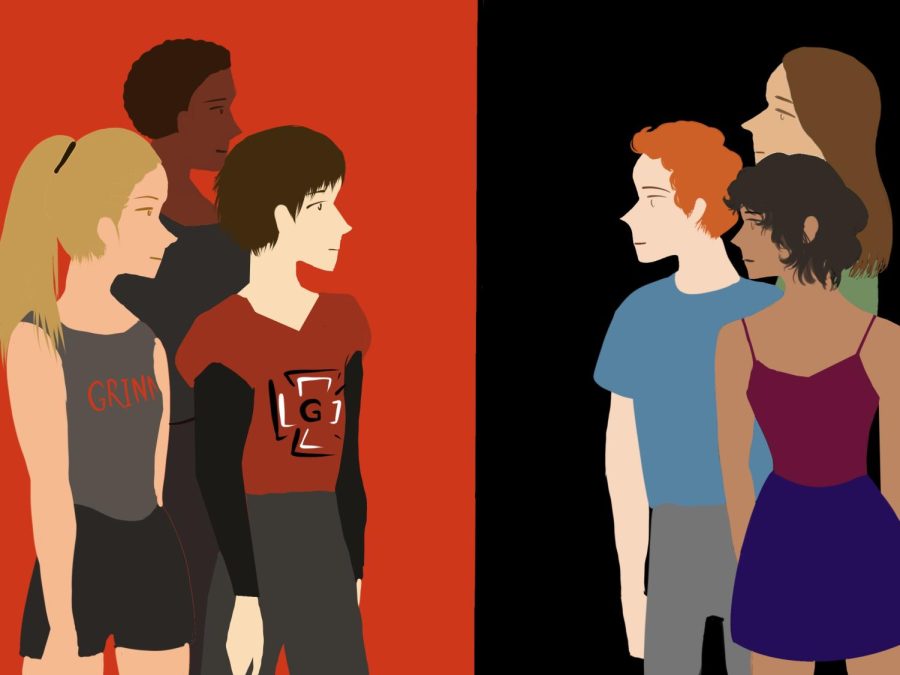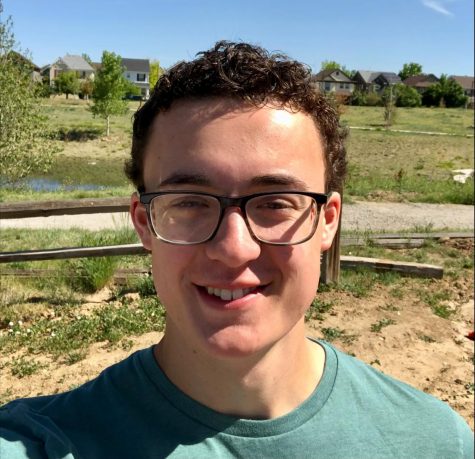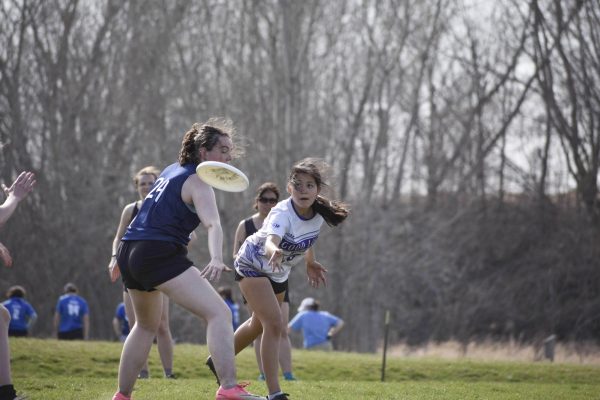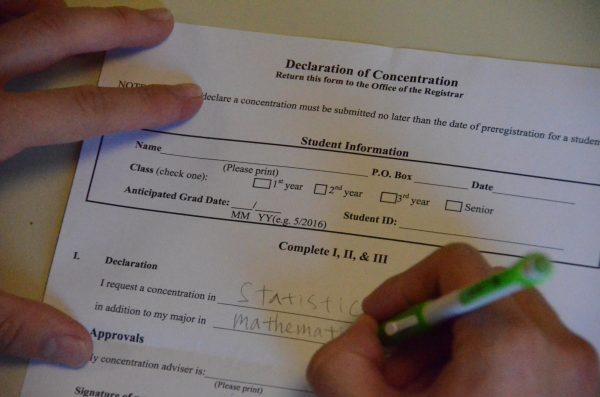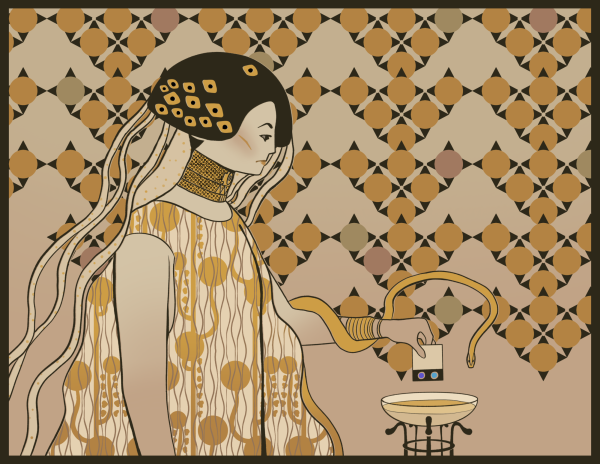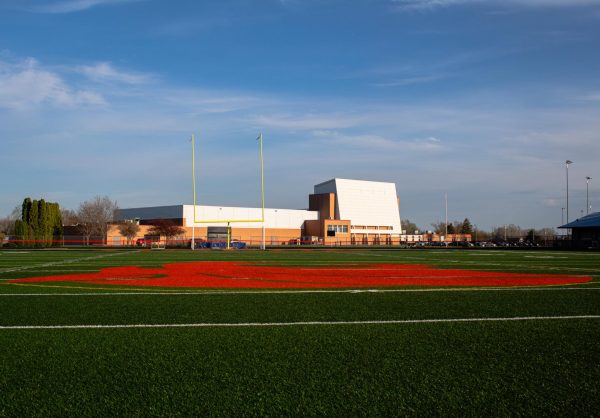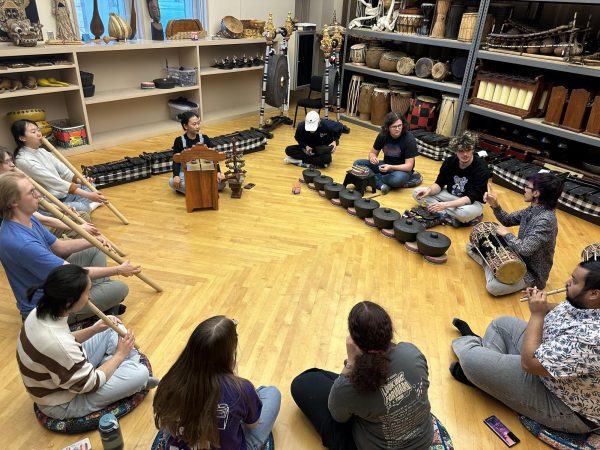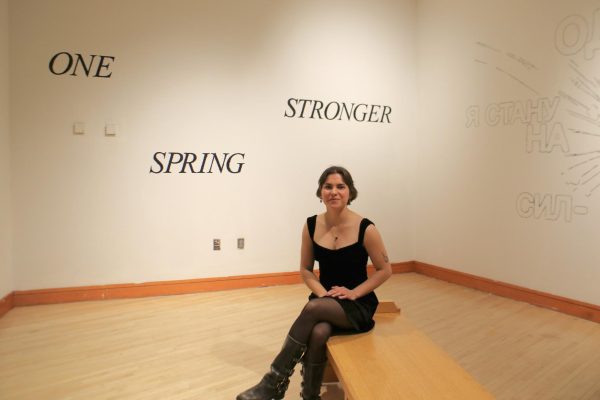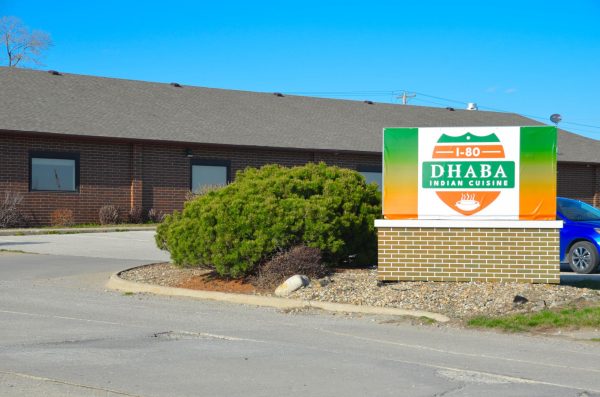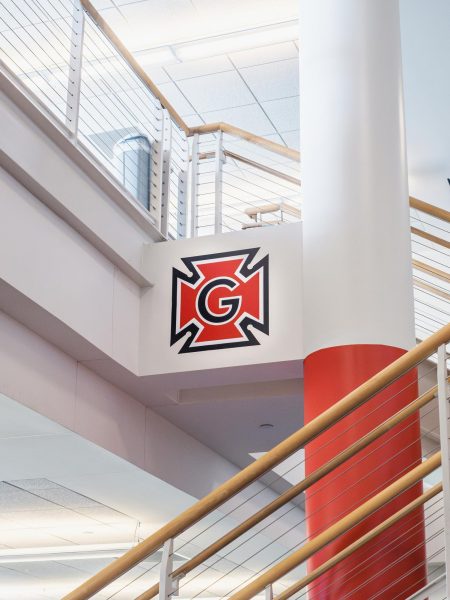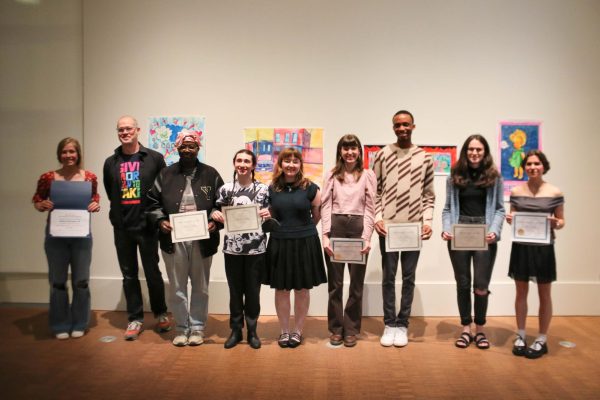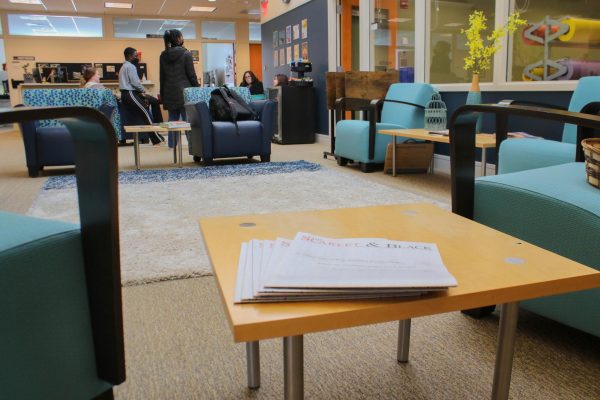An investigation into a social divide on campus: The non-athlete perspective
November 21, 2022
2023 Iowa College Media Association award winner, Third Place – Best Print/Online Sports Feature
“What does the word ‘sporto’ mean to you?”
This week, as I continued my investigation into the social divide between athletes and non-athletes, I turned to non-athletes for their thoughts on sports and school culture. I spoke with three students and asked about their social experiences at the school. They gave me a nuanced portrait of their social experiences, fielding questions about slang, New Student Orientation (NSO), cliques and more.
As a disclaimer: I don’t play for a varsity sports team. Thus, I approached this week with an unavoidable bias. I’ve tried my best to neutralize that bias when inquiring. I have, however, incorporated my experiences into the broader narrative of non-athletes at Grinnell, presenting it alongside the interviewees.
I started by explaining my project and asking for general opinions on the topic. The answers immediately veered away from my previous installment. Whereas athletes had hesitated to characterize the social scene as divided, non-athletes showed no such reluctance.
“Certain sports teams are very removed from me, personally,” said Bella Steward `25. “They all have their own friend groups.”
Steward, like the other non-athletes I talked to, described how athletes tend to socialize with other athletes — in the gym, in the Dining Hall and on High Street. She painted a picture of a campus divided. At the same time, though, Steward acknowledged her proximity to certain athletes. In particular, her current roommate competes for the track team.
Other students also expressed that they found friends through shared traits or identities, particularly those that extend beyond Grinnell. Phukao Prommolmard `24, for instance, said that he bonded with fellow international students his first year.
“When you talk to other international students, they really understand … it’s really relatable,” explained Prommolmard, who comes from Thailand. As such, he believes that most international students hang out with other people from outside the U.S. However, Prommolmard said that participation in musical events on campus has had the largest effect on his social life.
In a similar vein, Addy Davis `22.5 cited her involvement in the Union of Grinnell Student Dining Workers and political campaigning as key factors in forming relationships. “It’s a small school,” said Davis. “It’s hard to meet people without being involved in something.”
Davis ran for the cross country team during her first two years at Grinnell but stopped running competitively after the pandemic. Before then, Davis said, she was closest with her teammates. But, since leaving the team, she has found her social life to be “less stressful.” She said she has felt “able to branch out” more after quitting the team, without the social pressures stemming from sports teams.
Perhaps nothing defines the social divide at Grinnell better than the word “sporto.” When I mentioned it, interviewees laughed and paused to collect their thoughts.
“‘Sporto’ is used way more often than you’d ever expect,” said Steward, shaking her head. She uses the word jokingly with friends, and though she maintained that she doesn’t intend it to be malicious, “Sometimes it’s a little mean” when coming from other students, Steward said.
Both Prommolmard and Davis agreed that the word “sporto” can be thrown around with negative connotations. “It is usually used in a derogatory manner,” Davis told me. Consequently, she theorized that some sports teams are offended by it. Still, she noted that she used to describe herself as a sporto when participating in varsity athletics.
When I talked with athletes a few weeks ago, none of them perceived hostility from non-athletes. On the other hand, students this week all said they perceived negative sentiments about athletes. “People have stereotypes,” Prommolmard admitted.
Between the three interviews and my own observations at Grinnell, I grew familiar with these stereotypes: athletes are louder, more obnoxious, less politically correct, less approachable and less academic than non-athletes. To be clear, I don’t give credence to these generalizations. Nobody I’ve spoken with has given any indication that they believe such stereotypes, either. Instead, non-athletes all blamed a mysterious, undefined presence — “other students,” “some people I know” — for spreading these misconceptions. To be fair, I would’ve given a similar answer; I’ve observed non-athletes mocking athletes, but I wouldn’t name anyone in a publicly available interview.
Nobody in my conversations had experienced the social divide as an impenetrable wall. Each non-athlete highlighted their friends on sports teams, for example. Similarly, all seemed comfortable connecting with athletes in certain circumstances — through shared activities, shared identities and shared interests. And yet, each perceived tension on campus and cast it in stark terms.
I’m left wondering if non-athletes exaggerate the social divide on campus. Since their descriptions of Grinnell-at-large tended to contrast with their own experiences, could their intuitions be wrong? Or, having selected a misrepresentative sample, did I accidentally exclude students with more potent stories, with harsher encounters? I include myself in the category of students who characterize the social divide as worse than my social life would suggest; I’m not sure if I represent an exception or the norm.
I’ll try to answer that in my next and final installment. I’ll be talking with the administration and summarizing my findings from this semester.




























































